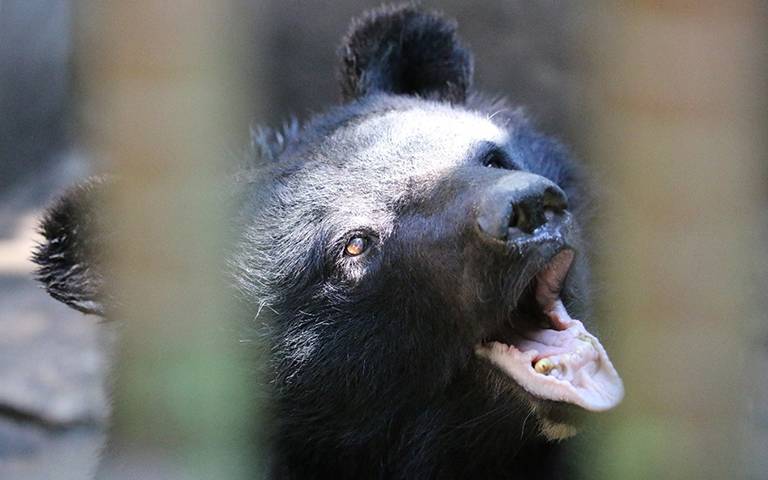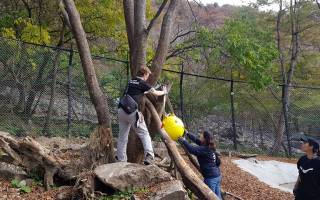End of bear farming in South Korea
20 December 2022
New research by PhD student Joshua Powell details major policy development as South Korea commits to end bear farming

New research by UCL Geography and ZSL Institute of Zoology PhD student, Joshua Powell, published in International Bear News with colleague Taegyu Choi (Seoul National University and Project Moon Bear), details South Korea’s plans to close all bear farms by 2026 and rehouse the captive bears in sanctuaries.
Josh explains, “This commitment potentially brings into sight the end of a near 30-year-long policy deadlock. While we’re clear that there are important challenges ahead in order to realise the government’s commitment to end bear farming in South Korea, this is tremendous news.”
Bear farming was established in South Korea in the early 1980s and was actively encouraged by the military-led government to supply domestic demand for bear body parts and bile for traditional medicine, as well as meat for human consumption, and to generate income for rural communities through international trade in these products.
A variety of different types of bears were imported to stock the farms, with the predominant animals being Asiatic black bears (Ursus thibetanus), also known as ‘moon bears’, a species which is native to the Korean Peninsula.
However, conservationists have long been concerned that bear farming fails to deliver benefits for – and may increase risks to – wild bear populations. Meanwhile, the poor welfare conditions present on South Korea’s bear farms have come in for increasing domestic criticism, with animal welfare an increasingly important political issue in the country.
Josh (left) and other volunteers from Project Moon Bear and Animal Rights Advocates (KARA) construct enrichment for formerly farmed bears in a new, outside enclosure. (c) Sehee Park

Josh concludes, “Until now, the question of what to do with the remaining captive bears, being long-lived and highly mobile large carnivores that are habituated to feeding by humans, has remained unanswered.
The new strategy includes provisions that the state sets up ‘sanctuaries’ to rehouse bears from bear farms.
We believe that these changes in South Korea will likely be of substantial interest to conservationists and policymakers in other countries where bear farming currently occurs.”
Josh is supervised by Professor Jan Axmacher at UCL Geography and Professor Sarah Durant at ZSL’s Institute of Zoology. He is funded by the London NERC DTP.
You can read the article in International Bear News
 Close
Close

